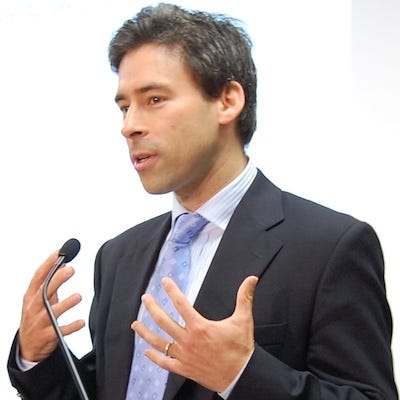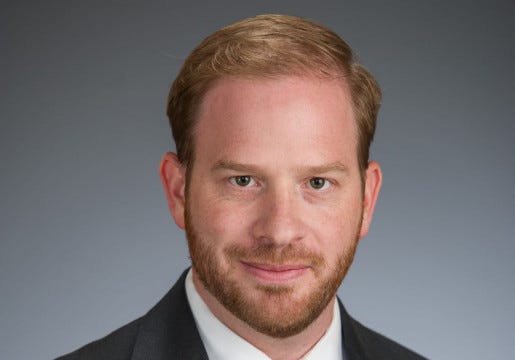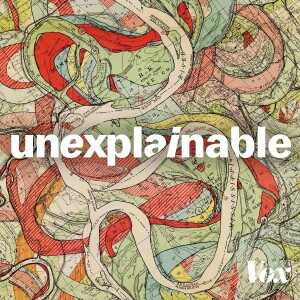

Razib Khan's Unsupervised Learning (private feed for dxbarr@zohomail.com)
https://api.substack.com/feed/podcast/94899/private/1e8a2595-ff73-422a-b953-40cad4976445.rssEpisode List

Alexander Cortes: broscience, health science and fertility
This is a free preview of a paid episode. To hear more, visit www.razibkhan.comOn this episode of Unsupervised Learning, Razib talks to Alexander Cortes. Cortes is a trainer, fitness influencer and entrepreneur. He is the co-founder, along with his wife, of Ferta, a company that aims to “optimize your reproductive health and conceive naturally.” Born and raised in California, Cortes began his career in the fitness industry as a personal trainer in 2010. Over the next few years he expanded his efforts online, writing about fitness and nutrition from a science-informed perspective. Cortes developed a following by offering practical advice on strength training, muscle building, and the psychological aspects of fitness to the interested general public, translating the wisdom-of-the-gym for the person on the street.In the first part of the podcast, Razib and Cortes talk about “broscience,” and how it differs from “quantified self” and other movements geared toward self-optimization. They discuss how “bros” arrived on the importance and utility of peptides long before the ozempic revolution, and how the iterative and experimental methods of gym-addicted amateurs predated and anticipated what would later become conventional wisdom. Razib also explores how Cortes’ particular style of broscience differs from that of others, with its stronger empirical basis and analytical orientation (and aversion to fads like “raw food”). They discuss the “peptide revolution” and how online fitness and health influencers discovered it earlier, the utility of the macromolecules in health and wellness, and what the online community discovered already that is likely to come down the clinical pipeline.In the second part of the discussion, Cortes introduces his new company, Ferta, and its situates its position in the fertility space. He explains the origin of his firm as he and his wife began to attempt to conceive in their 30s, and how difficult or easy the process was conditional on the optimizations they engaged in. Cortes explains many people struggle because they do things wrong, and don’t maximize their chances by being healthy and fertile.Note: This episode also features a bonus segment from Dinesh D’Souza, where he talks about his career as a public intellectual in the 1990s, and his origins as a conservative intellectual.

Kat Rosenfield: after the vibe shift
This is a free preview of a paid episode. To hear more, visit www.razibkhan.comToday on Unsupervised Learning, Razib talks to Kat Rosenfield. She is an American novelist, journalist, and culture critic known for both her fiction and commentary on contemporary political debates. She began her career in publishing and as a reporter for MTV News before branching out into broader cultural criticism, contributing to outlets such as The New York Times, Wired, Vulture, Reason, and UnHerd. As a novelist, she has written You Must Remember This (2023), No One Will Miss Her (2021), Inland (2014) and Amelia Anne Is Dead and Gone (2012). Rosenfield also co-authored the New York Times bestselling A Trick of Light (2019) with Stan Lee. She is currently a contributor to The Free Press and a co-host of the Feminine Chaos podcast.In the four years since Rosenfield was last on Unsupervised Learning the “culture wars” have seen a changing of the front lines; the woke ascendancy is no more, Elon Musk purchased Twitter, and Donald J. Trump is back in the Whitehouse. After the recording of this podcast Rosenfield was the target of a “cancellation” campaign due to her making light of white liberal gushing over the prose stylings of Ta-Nehisi Coates. But this being 2025, Rosenfield seemed more amused than afraid of the concerted attempt to “drag” her online and notify her employers. The first portion of this podcast discusses where we are now in the culture wars, how things have broadly changed, and which institutional pockets of the old woke ascendancy remain. Rosenfield and Razib also discuss the rise of gender polarization in online culture, and in particular, among Gen-Z.

Eric Kaufmann: a cultural revolution in winter
This is a free preview of a paid episode. To hear more, visit www.razibkhan.comToday Razib talks to Eric Kaufmann, a Canadian professor of politics at the University of Buckingham, where he directs the Centre for Heterodox Social Science. He earned his BA from the University of Western Ontario and his MA and PhD from the London School of Economics. Prior to his current role, he held positions at the University of Southampton and Birkbeck, University of London, which he left in October 2023. He is the author of several books, including Whiteshift: Immigration, Populism and the Future of White Majorities, Shall the Religious Inherit the Earth?, and The Third Awokening. His research interests include nationalism, political and religious demography, and national identity. Kaufmann is a previous guest on the podcast.Razib and Kaufmann begin their conversation by exploring the thesis of one of his earlier works, 2004’s Rise and Fall of Anglo-America. They discuss the definition of “WASP,” White Anglo-Saxon Protestant, and cultural changes in the white American majority because of the massive immigration waves of the 19th and early 20th century. Kaufman argues that a coalition of liberal WASPs and “white ethnics” was instrumental in the eventual overthrow of the cultural hegemony of elite Protestant whites in the second half of the 20th century. Razib and Kaufman then relate the history of the WASPs to his latest book, The Third Awokening, which chronicles the rise of “cultural socialism” centered around race. Kaufman documents the potency of the ideas of the latest variant of wokeness, their traction among the youth, and argues for its historical roots in earlier forms of Anglo liberalism.

Ryan P. Williams: the Claremont Institute standing athwart history
This is a free preview of a paid episode. To hear more, visit www.razibkhan.comToday Razib talks to Ryan P. Williams. He is president of The Claremont Institute, a position he has held since 2017. He is also a contributor to The Claremont Review of Books and started The American Mind. Williams earned a B.A. in political science and Economics from Hillsdale College and an M.A. in politics from Claremont Graduate University. He has taught American politics and political philosophy as an adjunct professor at California State University, San Bernardino and Cal Poly Pomona.Razib and Williams first discuss the origins of The Claremont Institute and the influence of Harry Jaffa on the think-tank’s founding and current thought. They explore the influence of Jaffa’s mentor, political philosopher Leo Strauss, upon his worldview, and the differences that define the “west coast Straussianism” associated with the Institute and “east coast Straussianism.” Williams also articulates how the conservative thought of Claremont affiliated scholars and pundits differs from other movements on the right, and in particular, how it is differentiated from both neoconservatism and paleoconservatism. Razib and Williams then go over The American Mind’s decision to publish Michael Anton’s “flight 93 election” piece, and the connection of many Claremont scholars to the Trump administration and the MAGA movement.

Chad Orzel: the state of physics and academia in 2025
This is a free preview of a paid episode. To hear more, visit www.razibkhan.comChad Orzel is a physicist and science writer who has been blogging for nearly twenty-five years. He’s the author of four books, Breakfast with Einstein: The Exotic Physics of Everyday Objects, How to Teach Quantum Physics to Your Dog, How to Teach Relativity to Your Dog, Eureka: Discovering Your Inner Scientist and A Brief History of Timekeeping. The last is a mix of cultural and engineering history, archeology and physics, and reflects Orzel’s wide interests as reflected in his Substack, Counting Atoms.In this episode of Unsupervised Learning Razib surveys the state of physics communication and science, as well as our broader culture’s relationship with academia. Orzel and Razib first discuss the massive success of physicist-turned-YouTuber Sabine Hossenfelder. Emerging from academic physics and associated with Lee Smolin and the Perimeter Institute, Hossenfelder has shifted from skepticism of mainstream theories like string theory to arguing that academic science as a whole must be restructured. Orzel also notes that contrarian or heterodox views in popular areas such as astrophysics and particle physics receive much more attention than applied fields like solid-state physics. Razib and Orzel reflect on how science communication has changed over the past two decades, moving from the text-driven blog era before 2010 to the rise of podcasts and video. They also discuss the many technological applications of physics in the 21st century, particularly in battery technology, an area that is transforming daily life but rarely serves as fodder for glossy popular-press treatments.In the second half of the podcast, Orzel considers how science, and academia more broadly, have navigated the adversarial stance of the Trump administration. Razib asks whether institutional science, shaped in the post–World War II era, may be due for a major transformation, or whether it is even approaching the end of its line. Finally, Orzel addresses whether academics can regain broad public trust in the wake of the extreme politicization of the 2010s.
Create Your Podcast In Minutes
- Full-featured podcast site
- Unlimited storage and bandwidth
- Comprehensive podcast stats
- Distribute to Apple Podcasts, Spotify, and more
- Make money with your podcast












